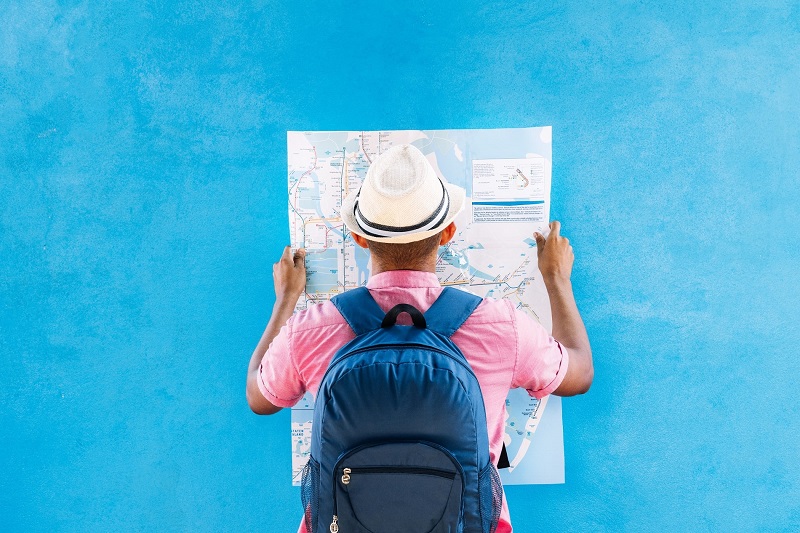I’ve been there, standing over a suitcase that’s bursting at the seams, wondering if I really need six pairs of shoes for a weekend trip. It’s a common struggle: overpacking. But what if I told you there’s a better way? A way to travel lighter, simpler, and hassle-free?
Welcome to the minimalist traveler’s guide, a roadmap to conquering overpacking once and for all. I’ll share tips, tricks, and secrets I’ve learned from years of globetrotting. Let’s embark on this journey towards minimalist travel together, and trust me, your suitcase (and sanity) will thank you.
Understanding the Concept of Overpacking
Overpacking saddles travelers with unnecessary luggage that weighs them down. It’s an issue that compels us to evaluate its implications and unravel the psychological reasons behind it.
The Problem with Overpacking
Too many items in your luggage creates a significant ordeal. It’s tough to manage a heavy bag, especially when moving from place to place. It restricts your mobility, forces you to pay extra baggage fees, and can cause stress and fatigue – both physical and mental. Just imagine, carrying a 30-pound backpack on a hot, sunny day in a crowded city, swiftly zaps the joy out of exploring new locations. Experiencing the world shouldn’t be a weight-lifting exercise, rather a breezy stroll. Moreover, keeping track of a plethora of items adds to the woes, increasing the risk of misplacing something valuable in transit.
Psychological Reasons behind Overpacking
The fear of running out of necessities is primarily our brain’s instinct to protect us, hence leading to overpacking. We tend to forecast the worst-case scenarios – the “just in case” mentality. In this manner, we end up packing for improbable situations and overestimate the quantity of items we’ll actually require. A survey by british airways found that over two-thirds of travelers admitted to packing too many clothes, yet, 34% of them were habitual overpackers, packing more for each trip. On examining the psychological reasons, personal insecurity and a tendency to seek comfort in familiar objects were some identified factors. This signifies that our mental patterns influence our packing habits more than we realize.
Embracing the Minimalist Approach to Travel
Embracing minimalism in travel isn’t just about packing fewer items. It’s about being resourceful with what you carry and mindful of the experiences you seek.
Defining Minimalist Travel
Minimalist travel, simply put, involves taking only what you genuinely require on a trip. It streamlines not just your suitcase, but your itinerary too, keeping both clutter-free. But let’s not mistake this approach for deprivation. Rather, minimalist travel is a shift in mindset, making choices based on necessity and conscious intent, not excess. For instance, packing versatile clothing items, like a multi-way shawl or convertible pants, or sticking to travel-size toiletries, instead of full-sized products, exemplify minimalist packing strategies.
The Benefits of Becoming a Minimalist Traveler
Becoming a minimalist traveler has its fair share of benefits, and I’m not just highlighting the reduced luggage weight. One distinct advantage is heightened mobility. Picture effortlessly navigating crowded airports or climbing steep steps of a hillside town, without the constraint of heavy bags. It’s also liberating at a psychological level. With fewer possessions to worry about, you’re likely to experience less stress, feel lighter and freer. And let’s not forget the inevitable financial savings from avoiding extra baggage fees. Moreover, a minimalist itinerary keeps you focused on experiences that truly matter, providing authentic connections with your chosen destination. For example, spending an entire afternoon observing life in a local cafe, or taking a slow walk around the neighborhood to understand its culture and way of life, instead of rushing through a checklist of tourist hotspots, can enrich your traveling experience manifold.
Conquer Overpacking: The Minimalist Traveler’s Guide
Transitioning to minimalist travel isn’t overly strenuous. It involves understanding and emulating the practices of minimalist packers.
Step-by-Step Guide to Pack Like a Minimalist
- Identify Essentials: Commence by outlining items that are absolutely necessary. These include essentials such as passports, money, and medications.
- Downsize Toiletries: Toiletries often take substantial space. Travel-size versions of daily care items like toothpaste, shampoo, and soap can save a lot of room. Alternatively, it’s manageable to buy certain items at your destination.
- Limit Clothing: Packing minimal clothing items, particularly those that are versatile and can be layered, are a key asset.
- Use Packing Aids: Using packing aids such as packing cubes, compression sacks can streamline your luggage.
- Review and Reevaluate: Finally, review everything you’ve packed, and reevaluate its necessity. If life can go on without it during your travels, then it likely doesn’t belong in your lightweight backpack.
- Create a Packing List: A well-considered packing list stops the spontaneous addition of unnecessary items.
- Choose Your Backpack First: Selecting a small, comfortable backpack automatically limits the quantity you will pack.
- Utilize Travel Apps: Apps like PackPoint assist with generating a minimal packing list based on destination, weather, and activities.
- Adhere to the 3-1-1 Rule: The Transportation Security Administration (TSA)’s rule for carry-on luggage allows 3.4 ounces (100 milliliters) or less per item of liquids, aerosols, gels, creams, and pastes packed in a 1 quart-sized, clear, plastic, zip-top bag – one per passenger.
- Pack in Layers: Instead of one heavy item for colder climates, packing multiple lightweight layers offers flexibility for varying weather conditions.
By emulating the step-by-step guide and following the tips, anyone can transition to a minimalist traveler, effectively conquering overpacking.
Essential Items for the Minimalist Traveler
The transition to minimalist travel revolves around knowing and packing only the essentials. Here we’ll discuss key items, particularly clothing and tools that’ll fit the bill perfectly.
Minimalist Clothing Ideas for Traveling
Becoming a minimalist traveler involves mastering the art of packing light yet versatile clothing. Strap down your wardrobe needs to items that are multipurpose, light, wrinkle-resistant, quick-drying, and color-coordinated. For example, mix and match clothing such as black slacks, dark jeans, neutral color shirts, a versatile dress, and layering pieces like scarves or shawls. Limit shoes to a pair of comfortable walking shoes, a pair of versatile flats, and flip-flops for beach or pool visits. Always consider your destination’s weather and cultural norms when selecting your travel attire.
Essential Tools for the Minimalist Traveler
Invest your packing space wisely by focusing on essential, multi-use tools. These could include a smartphone equipped with travel applications for navigation, language translation, and accommodation booking. Another must-have is a universal adapter, that’ll keep your electronics running irrespective of your geographical location. Portable chargers, space-saving toiletry kits, and a multi-purpose tool like a Swiss Army Knife can also come in handy. Remember,with a limited set of versatile items, you can travel lighter, easier, and more flexibly. Stick to the mantra: pack less, experience more.
Case Studies of Successful Minimalist Travelers
Let’s explore some travelers who have truly mastered the minimalist travel philosophy.
- Zach Honig: As an Editor-at-large for The Points Guy, Zach traveled to over 25 countries with just a compact backpack. By focusing on bringing versatile clothing and relying on cloud-based storage for work, he circumvented the need for excess baggage.
- Courtney Carver: Creator of Project 333, Courtney revolutionized travel by proposing a minimalist wardrobe. She advocates for packing less than 33 items, including clothes, accessories, and shoes for trips lasting three months.
- Fumio Sasaki: A well-known minimalist author from Japan, Fumio frequently traveled with little more than a small bag. He mastered minimalist travel by packing only travel essentials and utilizing digital tools for entertainment and work tasks.
These individuals showcase that embracing minimalism while traveling not only lightens physical loads but also enhances experiences, freeing time and energy for adventure and discovery. With strategic planning and a disciplined approach, it’s possible to overcome the challenge of overpacking.
Conclusion
So there you have it! Overpacking is no longer a hurdle we can’t overcome. With a minimalist approach, we’ve seen how travel can be transformed into a lighter, more enjoyable experience. By identifying essentials, downsizing, and smart packing, we can shed the physical and mental weight of excess baggage.
Remember, it’s not just about packing less, it’s about packing smart. A small backpack filled with versatile and multipurpose items can meet our needs without compromising on comfort or convenience.
Our case studies have shown us that it’s entirely possible to travel the world with less. So next time you’re planning a trip, give minimalist travel a shot. You might be surprised at how much more you can enjoy your journey when you’re not weighed down by stuff. After all, isn’t that what traveling is all about? Let’s embrace the freedom and joy that comes with minimalist travel. Happy packing!










0 Comments